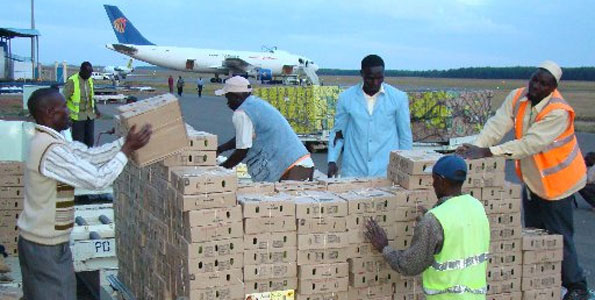Commodity exchange to attract agric funding
THE Zimbabwe Mercantile Xchange (ZMX), a recently established electronic agricultural commodity trading platform, could become the gateway for increased private sector investment into agriculture, a senior official said.
Escrow group, which operates the newly introduced commodity exchange, chief executive officer Collen Tapfumaneyi, said the platform may attract much needed investment into this strategically important sector.
The platform, which was launched last week, intends to bring together producers of agricultural products and buyers, both within and outside the country in an efficient and cost-effective manner.
Zimbabwe last had such a trading platform in 2000, although the earlier platform did not run on a modern system similar to the recently introduced technology.
ZMX, a brainchild of Escrow, a financial services technology group, will tap into the high mobile money technology penetration amongst Zimbabweans as it will be accessible via popular platforms like USSD,mobile applications and web portals.
In an interview, Mr Tapfumaneyi said ZMX will not be about trading alone, but wideranging activities that include facilitating issuance of warehouse receipts that can be used as collateral for loans.
“We are currently looking at securitising commodities for them to become instruments that can be acceptable in the financial services sector and the gap is there, as we speak banks want to fund agriculture. But how do they secure their interest?
“There is a very strong legal framework that supports everything we will be doing. The warehouse receipt system itself is anchored on very strong legislation. We have the Warehouse Receipt Act and warehouse regulations, that is what gives confidence to the financial services sector to then participate in funding agriculture.
“The platform therefore provides intermediation or infrastructure that will actually enable funding into agriculture by the financing institutions,” said Mr Tapfumaneyi.
ZMX is a mechanism that ensures that goods find markets in a seamless manner and according to Mr Tapfumaneyi there has been immense positive response by banks and warehouse operators who want to come on board.
According to ZMX, warehouse receipt holders will use the stored commodity as collateral to secure a loan to finance household consumption, investments or working capital.
The holder, through the digital channels, can request to pledge their commodities and the banks will have access to remotely accept and decline these pledges. TSL and Grain Marketing Board (GMB) are the current warehouse operators on board with two private anticipated to join before long.
To support the demands of the commodities traded and financed on the exchange, ZMX has a network of certified warehouses around Zimbabwe that act as delivery centres for the exchange.
Warehouses approved by ZMX have met strict criteria before they were certified for the handling and storage of commodities.-chroniclec.co.zw









